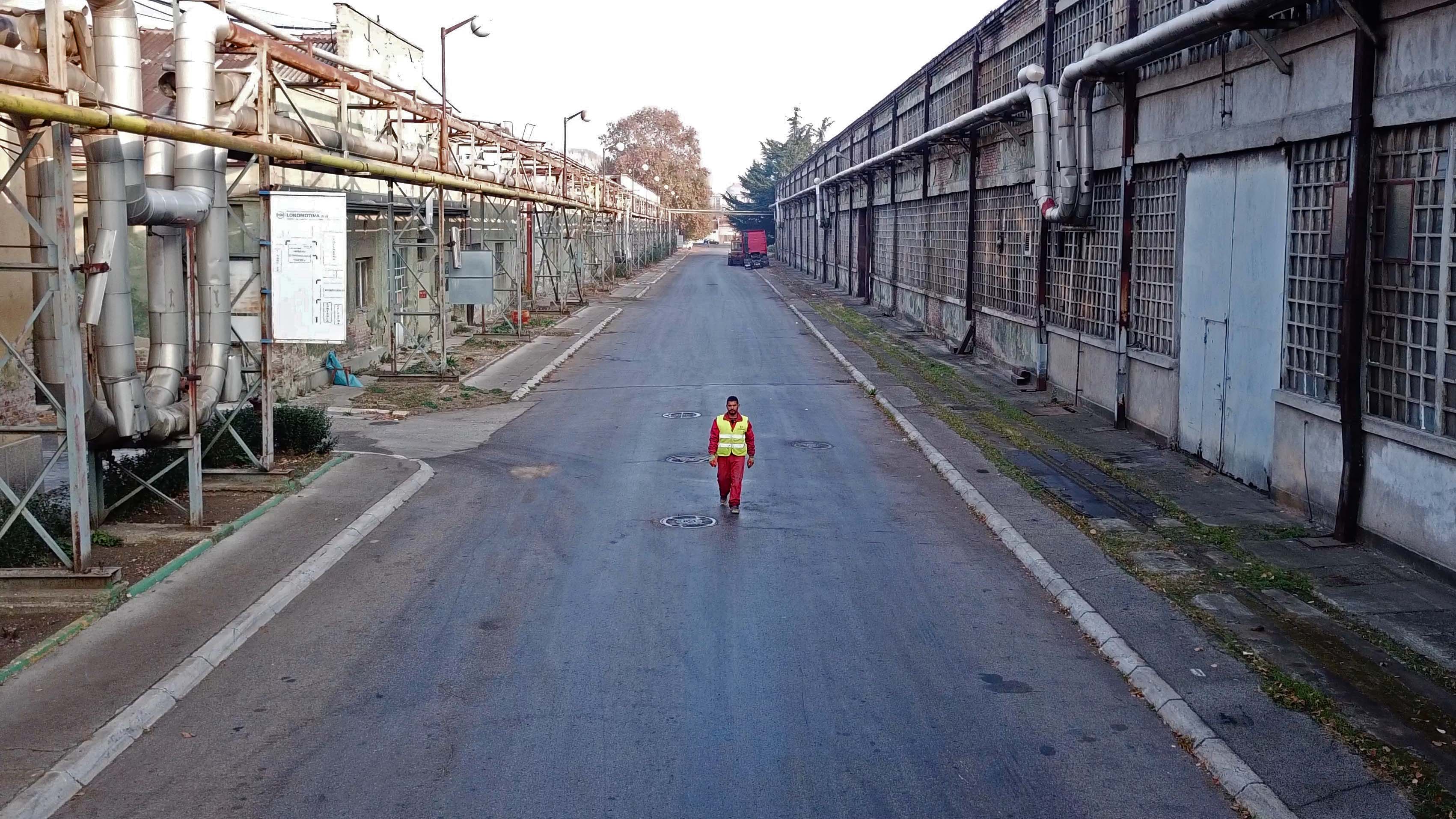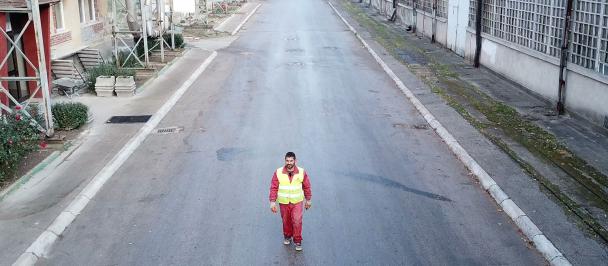Bora, a Roma returnee to Serbia, walks to work at his construction company. Photo: UNDP Serbia
Western Balkan countries and territories – Albania, Bosnia and Herzegovina, Kosovo*, Montenegro, North Macedonia and Serbia – share a number of common features - a collective past (most of the region was part of Yugoslavia), similar economic and social conditions, common aspirations for EU accession, geographical proximity to the EU, and the fact that most of them now are visa-liberalised for travel to the Schengen area.
There are also similar migration patterns, given that the Western Balkans is both a region of transit and origin of migration. Since the early 90s, there have been high rates of migration into EU member states, Germany being the most preferred destination.
Every two minutes one person leaves the Western Balkans as an economic migrant to the EU, according to a recent study. Albania, North Macedonia and Serbia were ranked among the top 20 countries with the highest number of nationals with unregulated status in EU member states. Roma** make up a large part of this group.
Why do Western Balkan nationals leave?
Limited work opportunities, low-paid jobs, a large informal sector, corruption and the poor quality of health and education services are some of the main drivers for outmigration. Discrimination on various basis including race, ethnicity, and sexual orientation, and domestic or ethnic violence are also factors.
Access to the labour market is even more challenging for minorities such as the Roma. Every third Roma in the region is inactive, barely one in five is employed and two thirds of those employed work in the informal economy. The socio-economic profile of Roma women is even more precarious: their employment rates go as low as 3-4 percent. Quantitative and qualitative surveys conducted by UNDP and the World Bank confirms this. The high percentage of Roma asylum seekers from the region, ranging from almost 62 percent of all applications from North Macedonia to 83 percent from Serbia, is driven by their social and economic hardship.
But the Western Balkans have been declared “safe countries of origin” by most destination EU countries, and most asylum applications in the last decade are being declared “unfounded”. This has expedited the procedures for returning asylum-seekers under readmission agreements. In 2020, return decisions grew significantly, from around 26,000 in 2019 to almost 35,000 in 2020.
What happens to returnees after crossing back over their home border?
When back home, vulnerable returnees, especially Roma, face countless barriers related to housing, access to education and employment, and discrimination. They often report that they feel worse off compared to their peers who had never migrated.
Many return to long-abandoned, dilapidated homes where they live in inadequate conditions. Some of them have no homes at all.
Returnees are often people who left their home country precisely because they could not find work, due to discrimination or lack of skills. Discrimination persists upon their return. Recognition of skills is another key challenge. Even those who worked while in EU countries often return without official certificates of acquired knowledge and skills, which restricts their finding a (better) job back home.
Returnee children frequently face difficulties in following classes due to limited local language skills, often having to repeat a grade. Returnees report challenges obtaining personal identification documents, without which they cannot apply for social assistance, health care, education and other forms of social protection.
This wave of return migration has highlighted numerous challenges because the Western Balkan economies are finding it hard to cope with high numbers of return migrants. With the introduction of the readmission agreements, the IPA beneficiaries from Western Balkan have, to some extent, improved the legislation for procedures and reintegration response measures. Serbia, for example, already has a robust system in place, and Albania and North Macedonia have made some advances.
However, existing frameworks do not offer practical reintegration solutions or, for several reasons, do not implement them effectively. Local authorities have limited resources and mechanisms for meaningful partnerships with civil society and the private sector to support the reintegration process.
The lack of systematic data about vulnerable returnees makes the reintegration process ineffective and services not inclusive. This reinforces returnees’ economic and social exclusion, and, in turn, increases the risk of secondary migration.
At the same time, Western Balkan economies are failing to utilize a huge potential that returnees can bring back to the local labour markets and society.
What needs to be done (the sooner the better)
Coming back home should not mean coming back to poverty. Local self-governments play a decisive role when it comes to better social and economic reintegration of vulnerable returnees. We’re supporting host communities to effectively respond, support and reintegrate vulnerable refugees back to the Western Balkans. Some of the services needed are helping children to fit more easily into the school system, assistance in obtaining documents, as well as job training and small grants for returnees who wish to start their own business. All services need to be better coordinated to avoid overlapping or void in competencies, and to be tailored to returnees’ most pressing needs.
Through the EU-funded regional project "Strengthening National and Local Systems to Support Effective Socio-Economic Integration of Returnees in the Western Balkans" UNDP in working in Albania, North Macedonia, and Serbia to encourage institutions to implement comprehensive and innovative solutions for economic and social empowerment of vulnerable returnees.
*All references to Kosovo should be understood to be in the context of United Nations Security Council resolution 1244 (1999).
** The term ‘Roma’ is used to refer to a number of different groups (e.g. Roma, Sinti, Kale, Gypsies, Romanichels, Boyash, Ashkali, Egyptians, Yenish, Dom, Lom, Rom, Abdal) and includes Travellers, without denying the specificities of these groups.

 Locations
Locations

